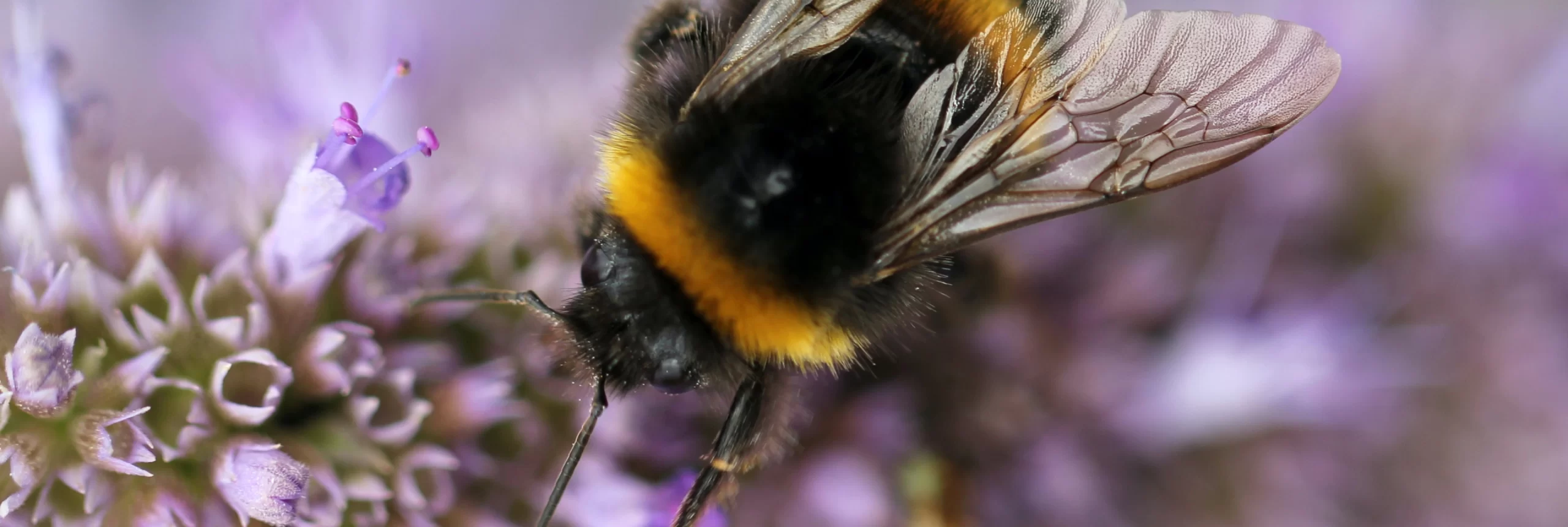You may not have heard of it before, but you have certainly spotted it at least once: its flowering expanses are a stunning sight. Five petals between violet and bluish, from which sprout many stamens and styles; pinnate leaves covered with hairs. We present the Facelia, botanical name
Phacelia tanacetifolia
, an annual herbaceous plant that graces Italian fields and meadows with its many merits. Let’s discover them together.

Photo: Andrea Marziali
First of all, phacelia is a “melliferous” crop par excellence: its prolonged flowering dispenses copious amounts of pollen and nectar to many pollinating insects, including bees, which use it to produce, indeed, honey of the highest quality. Crops such as Facelia are therefore credited with increasing the population of pollinating insects, as well as providing an alternative food source for other types of insects and a refuge for small mammals.
But the qualities of the Facelia do not end there: it is easy to grow and reproduces by self-dissemination, so it does not need to be reseeded. In addition, is used as fodder for cattle farms, or to produce the so-called “wrapped”, a technique for storing hay-the round bales, to be precise. It gradually gives up large amounts of nitrogen to the soil, and is thus used for “green manure,” that is, buried to naturally fertilize the soil.

Photo: Coldiretti Emilia Romagna
In addition, the Facelia It naturally counteracts weed growth. And it attracts insects such as hoverflies, which in addition to pollinating feed on aphids, thus contributing to the so-called “biological control”, the agronomic technique that exploits the natural antagonistic relationships between insects to contain the populations of the most harmful ones. In short, Facelia is a beautiful, versatile plant that is a harbinger of numerous benefits in different areas. It is no coincidence, therefore, that it is used to enhance the environment at many levels: administrations use it to create covers of degraded areas, borders, rural areas otherwise abandoned; farms cultivate it to make their crops more sustainable.

Photo: TGR Basilicata
The positive peculiarities of Facelia, especially those for the environment, have been supported and promoted by the supermarket chain LIDL Which, in collaboration with Italian Agricultural Chain, resulted in an assortment of durum wheat pasta under the Combino brand., presenting the seal of guarantee Signed By Italian Farmers And it is “Bee Friendly.” A paste made only from wheat grown in Italy, on fields that are in close proximity to Facelia crops, whose nectar-rich flowers attract bees, actively contributing to enhancing the environment and creating an ecosystem that promotes the preservation and proliferation of the area’s bee population. A project designed for the environment, which supports the farmer who ethically manages the fields, and which aims to respond to the consumer who makes sustainable choices.









